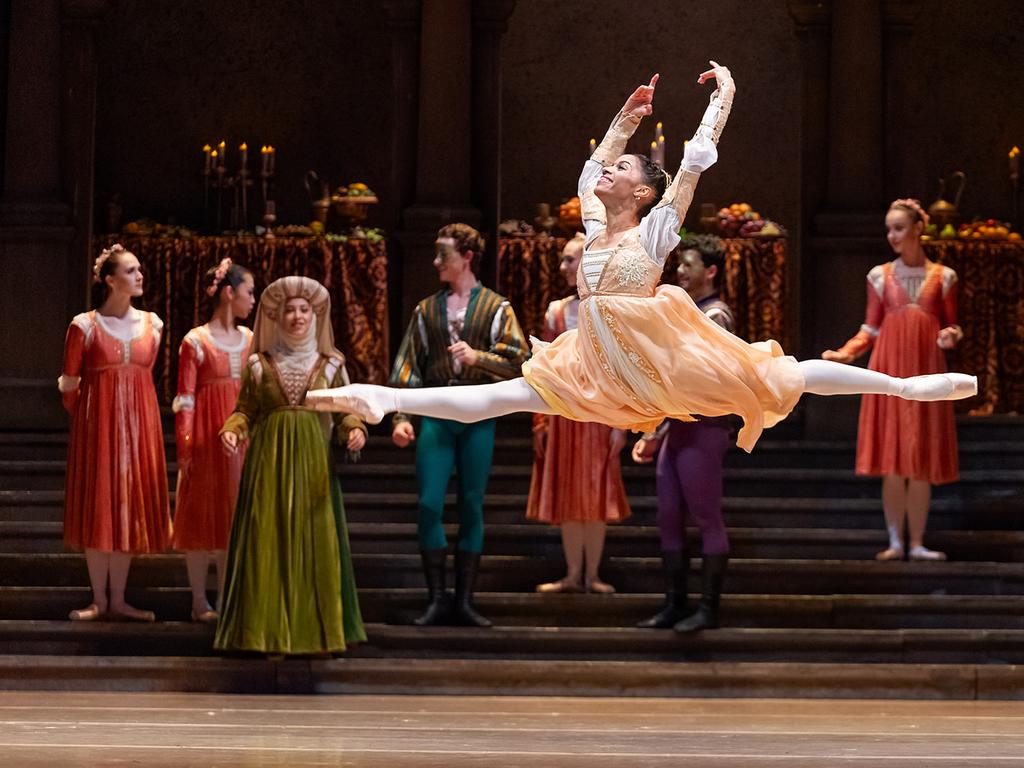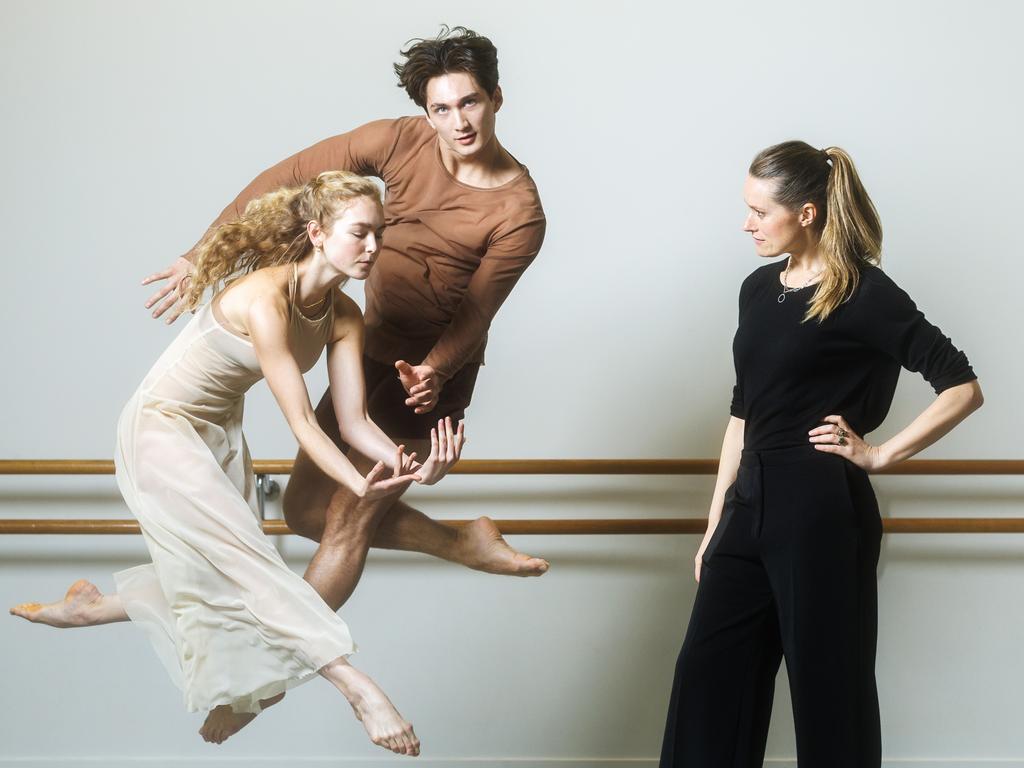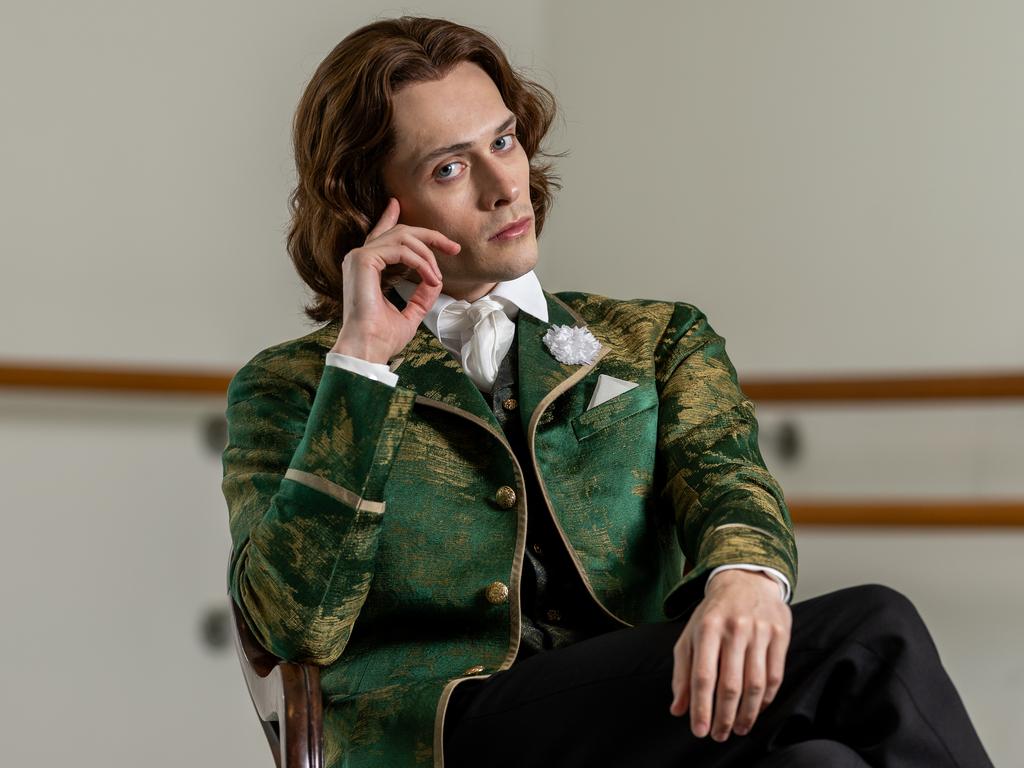Australian Ballet’s Oscar is important. But does it work?
Oscar Wilde, and the literary giant’s ‘too-muchness’, is a wonderful subject with an extraordinarily rich score but the ballet is still in search of an ideal form.
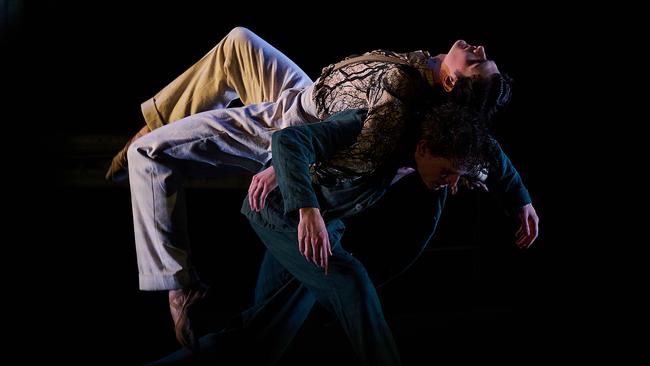
Can something be simultaneously too much and not enough? That was the case for Oscar Wilde in his tumultuous, ill-fated, on-off relationship with the mercurial Lord Alfred Douglas and it’s the case with Oscar, Christopher Wheeldon’s new full-length work for The Australian Ballet.
It’s a wonderful subject with an extraordinarily rich score by Joby Talbot but the ballet — particularly in the drawn-out first act — is still in search of an ideal form.
There’s a strong flavour of Wilde’s too-muchness in Oscar with its 20 named characters, multiple layers of reality, a fractured approach to narrative and free intertwining of fact and fiction.
It’s ambitious and it doesn’t all work. There are early dull patches and some confusing choices but in the main they are found in the first half. Much can be forgiven and indeed forgotten in the stirring sprint to the finish after interval.
Wilde was far from being the only man in Victorian London to have a passionate attachment to his own sex but chose the wrong battle to fight. He was convicted of gross indecency and jailed for two hard years.
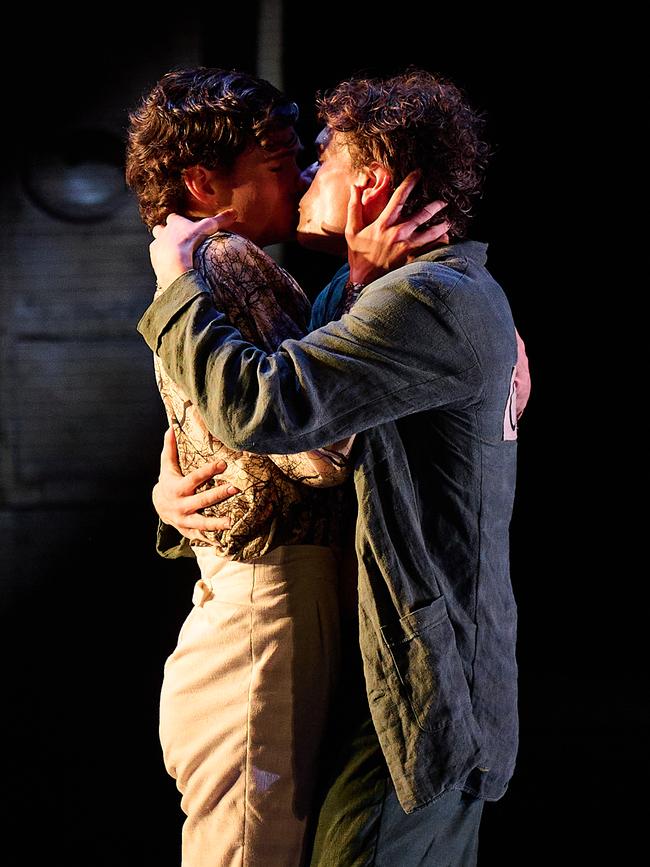
Wheeldon’s scenario, written with Talbot, uses Wilde’s imprisonment as a framework. From his cell this now tortured soul conjures fragmented images of life, family and friends. We see Wilde as husband and father, raconteur and admirer of famous theatrical divas (many will need to do their homework to get on top of this bit).
It’s a device that works visually. Jean-Marc Puissant’s fluid set matches the speed and magpie quality of memory but there’s a downside. Oscar is now at one remove from real life and feels too recessive a figure. Wilde was a man who didn’t so much flirt with danger as take it out for a slap-up meal and a show. Wheeldon offers a somewhat soft-edged portrait of a man who was nothing if not a big, transgressive personality.
It’s not the fault of opening-night star Callum Linnane — he was ravishing in everything he was asked to do — but in the first act there are times when Oscar is absent from his own story.
The extensive interpolation of Wilde’s The Nightingale and the Rose, a fable that tells of fruitless sacrifice in the name of love, is a key culprit. There’s just too much of it, even with the lustrous Ako Kondo as the Nightingale.
Happily things come to life when Oscar’s friend and early lover Robbie Ross enters the picture (Joseph Caley, memorable despite his limited stage time). Wheeldon’s dance-making really sings here as Ross elegantly fans the embers of desire and brings erotic spark to the show. The game is on with Wilde’s wife Constance (Sharni Spencer) as a touchingly innocent observer.
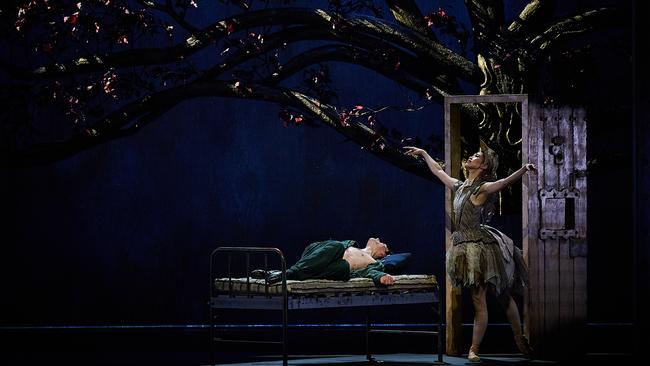
Oscar is then introduced to hijinks in low dives, where Talbot lets loose with boozy brass and rousing music-hall tunes and Wheeldon with gloriously scenery-chewing dance. Fatefully, Oscar falls under the spell of the unworthy Douglas (Benjamin Garrett). The downward spiral begins.
Wheeldon and Talbot bring seductive energy to the stage in the nightmarish, hallucinatory second act in which aspects of Wilde’s The Picture of Dorian Gray fruitfully play a pivotal role.
The debauches — fairly tame, but this is the ballet — throw into relief a tender pas de deux for Oscar and Bosie, as Douglas was known. It’s here that Wheeldon really fulfils his mission: to honour a same-sex love story on a stage from which it’s long been excluded.
Oscar. Choreographed by Christopher Wheeldon. The Australian Ballet, Regent Theatre, Melbourne, September 13. Tickets: $53-$269. Bookings: online. Duration: 2 hours 15 minutes including interval. Ends September 24. Sydney, November 8-23.

